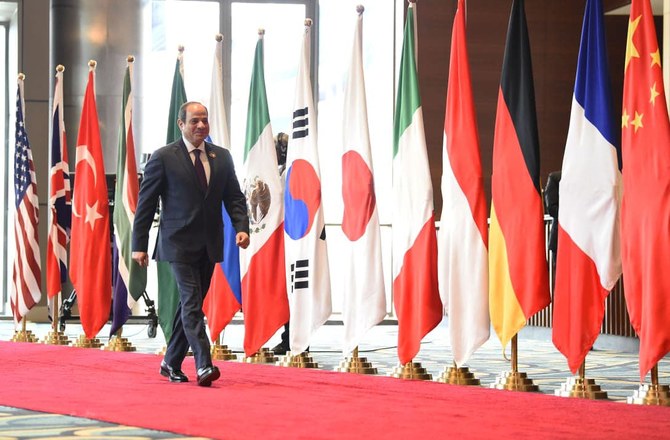CAIRO: Brazil, which this month took over the year-long presidency of the G20 from India, has invited Egypt to participate as a guest at the group’s meetings during 2024.
The Egyptian Foreign Ministry said that the invitation “reflects the ties of friendship and cooperation between the two countries and embodies Egypt’s regional and international position and influential role regarding the main international economic issues and files.”
Ambassador Ragy El-Etreby, assistant minister of foreign affairs for international and regional multilateral economic affairs, led the Egyptian delegation in Brasilia last week at a meeting of the personal representatives of the leaders of G20 countries. The participants drew up an action plan for seeking solutions to the structural difficulties facing the global economy, amid challenges related to poverty, inequality, sustainable development, clean energy and climate change.
El-Etreby said that Egypt’s participation comes at a time when G20 countries face major challenges as a result of the severe and successive crises that have affected the world since the outbreak of the COVID-19 pandemic, including the war in Ukraine and the humanitarian catastrophe in Gaza resulting from the ongoing Israeli aggression.
He noted that G20 member countries account for 80 percent of global gross domestic product, 75 percent of the total volume of international trade, and 60 percent of the world’s population, which means the group provides one of the most important frameworks for economic decision-making.
The contributions made by Egypt during the meeting in Brasilia reflected its desire to be active and influential during such gatherings, El-Etreby said, to help enhance joint international action on key topics and especially on priority issues for Egypt, Africa and developing countries such as food, energy, debt, and financing development and reform of the global economic system.


























